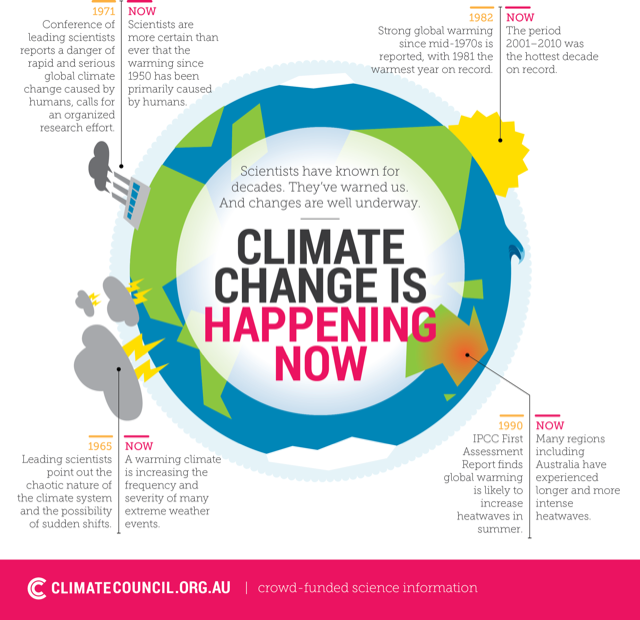|
9/19/2019 Innovation and Climate Resilience in the Caribbean. Is a Pan Caribbean Climate Action Partnership the answer?Read NowIn our Blog last week (September 9), we provided a sketch of the building blocks for climate resilience with special reference to the Caribbean. These building blocks it was suggested, revolved around (a) proposals for implementing the Caribbean Community Climate Change Centre Strategic Plan 2011-2021, (b) tapping the expertise in climate science at UWI and other institutions of higher education and research (c) scaling up the prominence of CARICOM's leadership in the Small Island Development States Climate agenda and (d) advocating for the delivery of global commitments such as the Paris Agreement, the UN and Multilateral agencies.
Consolidating the Building Blocks at the Regional level It is important to note that the building blocks are consolidated in response to a mandate from CARICOM Heads of Government for the Caribbean Community Climate Change Centre (5Cs) to:
Country initiatives as potential models for regional From among the multitude of programmes, being undertaken by CARICOM Countries, the following indicate a sample of initiatives:
The Need for Community Engagement In a very informative blog, "A call to Arms" - (September 10) , Winsome Leslie advised that lessons could be learned from community education programmes used in the islands of the South Pacific. She also recommends microfinancing institutions to expand a suite of products to include green loans to finance energy efficient solar projects to help the Caribbean to reduce its dependence on fossil fuels. See A Call to Arms -Time to Mobilize at the Local Level for Climate Resilience https://www.linkedin.com/pulse/call-arms-time-mobilize-local-level-climate-winsome-leslie How will the Caribbean Proceed It is clear from the building blocks, their consolidation in regional initiatives, the multitude of country programmes and the suggestion for community engagement, that CARICOM Countries are fully aware of the challenges and the solutions related to climate resilience. A major problem reflected in the deleterious consequences of climate change is illustrated most recently in the fury of Hurricanes Irma and Maria (2017) and Dorian (2019). These were mainly due to circumstances not created by the Caribbean and over which it has little control. The architecture for a Caribbean response rests in the underlying vision set out in the Strategic Plan for Climate Change in the Caribbean 2011-2021 by the 5Cs. It recommends pursuing the "three one's" principle: one coordinating unit, one strategic plan and one monitoring and evaluation system. It is a policy that was successfully implemented by the Pan Caribbean Partnership for HIV in the Caribbean with very positive results. It requires a concerted effort for synchronizing policies, rationalizing programmes across sectors and institutions and sourcing funds. While GOFAD has some thoughts about the architecture for such a Pan Caribbean Climate Change Partnership, it is important to first engage the focal points for Climate Change, the CARICOM institutions - 5Cs and CDEMA and UWI. We will return to this issue of "functional cooperation and Climate action in the region. What will this Cost? A major question, how much will functional cooperation climate action cost is beyond the scope of this blog. The Caribbean countries and institutions are aware of funding options. Indeed, they have sourced support from the Global Environmental Facility (GEF); the Canadian Climate Change Development Fund; The Commonwealth Climate Finance Hub (2016) to support climate adaptation and mitigation; the Caribbean Climate Smart Accelerator (2018) in response to making the Caribbean the first climate smart zone, and the Regional Climate Resilient Building Facility (2019) to provide technical assistance and disaster insurance support. The Global Commission on Adaptation (GCA) issued a report (September 10). The Commission led by former UN Secretary General Ban KI moon and including Dr. The Hon Keith Mitchel, Prime Minister of Grenada calls for global leadership on climate resilience. It finds that adaptation can lead to significant economic returns and that investing USD1.8 trillion globally from 2020 to 2030 in five climate adaptation areas could result in USD 7.1 trillion in net benefits. It identifies the five areas: early warning systems, climate-resilient infrastructure, improved dryland agriculture, mangrove protection and investments in increasing water resource resilience. It states that these represent only a portion of total investments needed and total benefits available. The Caribbean environmental and development scientists need to come up with a cost -benefit projection for achieving climate resilience in accordance to the 5Cs strategic plan Conclusions Filling the gaps for an effective architecture for a Pan Caribbean Climate Change Partnership and for sustainable funding in support of Climate resilience is a work in progress. Successful outcomes however can be achieved with political will and a commitment to unravelling the impediments to functional cooperation. This requires innovation that is transformative. In the final analysis, global solidarity is the main solution to this global problem. Eddie Greene
1 Comment
6/28/2021 06:36:07 am
I want to thanks for your time for this wonderful Article!! I definitely enjoying every little bit of it and I have you bookmarked to check out new stuff you blog post.
Reply
Leave a Reply. |
Details
AuthorEdward and Auriol Greene Directors, GOFAD. Archives
April 2022
Categories |
Global Frontier Site Links |
Contact InformationEmail: [email protected]
Twitter: @GofadGlobal |


 RSS Feed
RSS Feed
